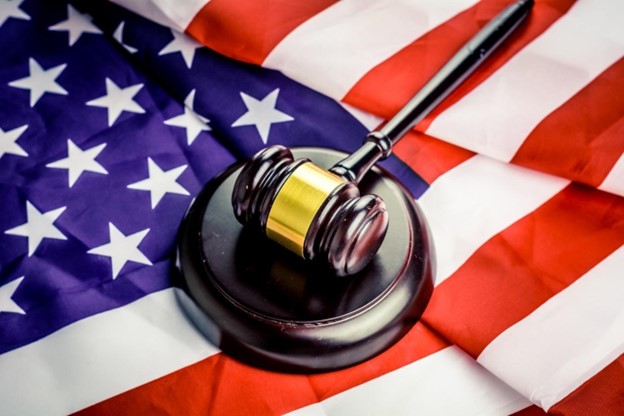The cryptocurrency world was intently watching the legal battle between the U.S. Securities and Exchange Commission (SEC) and Ripple Labs all over the several XRP news channels, a case that carried implications not only for the future of the XRP token but also for the broader landscape of the crypto industry.
On July 13, a U.S. judge ruled in favor of Ripple, concluding that the company did not violate federal securities law by selling its XRP token on public exchanges; this landmark decision is viewed as a pivotal moment that could shape the regulatory environment surrounding cryptocurrencies.
The case revolved around whether XRP, created by Ripple’s founders in 2012, should be classified as a security, subjecting it to specific regulatory obligations and investor protection rules.
The SEC had taken the stance that the $1.3 billion unregistered securities offering by selling XRP was in violation of the law; Ripple, on the other hand, vehemently contested this characterization, arguing that XRP’s sales on public exchanges did not amount to offers of securities.
This ruling is not just a significant victory for Ripple but also a precedent that may resonate with other crypto firms embroiled in similar legal tussles.
The decision’s implications extend to crypto exchanges, institutional investors, and the overall regulatory framework governing the crypto space; it also highlights the complexity and ambiguity that often accompany legal definitions and regulations in the rapidly evolving field of digital assets.
In this article, we will delve into the details of the ruling, explore the key aspects of this multifaceted legal battle, and analyze its ramifications for Ripple, XRP, and the crypto industry at large.
The SEC v. Ripple lawsuit has become a landmark case in crypto law, making the following XRP news a vital focal point for anyone interested in the intersection of law and digital currencies.
The Judgment: A Detailed Insight
● Ripple’s Victory
In a crucial decision by U.S. District Judge Analisa Torres, Ripple Labs, Inc. was ruled not to have violated federal securities law by selling its XRP token on public exchanges; this decision is the first win for a cryptocurrency company against the SEC, sending XRP’s value soaring by 75%.
● Partial Win for the SEC
Despite Ripple’s triumph, the SEC also gained a partial victory, with the judge ruling that Ripple violated federal securities law by selling XRP directly to sophisticated investors; Ripple’s $728.9 million of XRP sales to hedge funds and other sophisticated buyers amounted to unregistered sales of securities.
● A Potential Appeal
While the ruling stands as a significant moment, it may be subject to appeal, once a final judgment is issued or if the judge allows it before then; the SEC is reportedly reviewing the decision.
The Case’s Background
● SEC’s Accusations
The SEC had accused Ripple Labs and its executives of conducting a $1.3 billion unregistered securities offering by selling XRP; the crypto industry has closely monitored this case, disputing the SEC’s assertion that most crypto tokens are securities.
● The Court’s Reasoning
Judge Torres ruled that Ripple’s XRP sales on public cryptocurrency exchanges were not securities offerings, as buyers didn’t have reasonable expectations of profit tied to Ripple’s efforts – sales were considered “blind bid/ask transactions”.
● The Supreme Court Precedent
Judge Torres applied a U.S. Supreme Court case defining an investment contract – Ripple’s sales, including those by its executives and compensations to employees, did not involve securities.
Implications for Ripple and XRP
● Market Impact
Following the ruling, XRP’s value surged; the judgment’s market reaction was described as a “tremendous event for the industry”.
● Business Operations
Coinbase, the largest U.S. crypto exchange, announced it would allow trading of XRP on its platform again, following a careful review of Judge Torres’ decision.
● Industry Reactions
Ripple Chief Executive Brad Garlinghouse called the ruling “a huge win for Ripple but, more importantly, for the industry overall in the US”.
Wider Implications for the Crypto Industry
● A Precedent for Crypto Regulation
Although the decision is specific to Ripple’s case, it will likely provide ammunition for other crypto firms battling the SEC over jurisdiction matters.
● Impact on Future Crypto Lawsuits
Gary DeWaal, an attorney, said the ruling should help Coinbase in fighting its SEC case, emphasizing the judgment’s significance for the industry.
● Calls for Legislation
The crypto industry has called for legislation to clarify rules for tokens; the ruling has renewed calls for Congress to clarify the status of digital assets.
Looking Forward
● Ripple’s Future
With a landmark win, Ripple stands as a symbol of resistance against regulatory overreach, though the partial SEC victory adds complexity to the future landscape.
● Potential Impact on the Crypto Scene
The ruling’s resonance may influence regulatory approaches and open new opportunities and challenges in the global crypto arena.
The case’s final judgment might shape the next chapter in the ever-evolving narrative of crypto, making this XRP news essential to follow.
In Conclusion
The SEC v. Ripple lawsuit has culminated in a landmark decision that not only affects Ripple and XRP but also sets a precedent that may impact the wider crypto industry.
From Ripple’s victory to the SEC’s partial win and the broader implications for crypto regulation, the XRP lawsuit serves as a pivotal moment in crypto’s legal landscape.
Investors, crypto enthusiasts, and legal observers must keep a keen eye on XRP news as the industry absorbs this significant ruling.
The outcome and potential appeal may further redefine crypto’s legal standing, influencing future cases, regulations, and legislation.
In this turbulent world of crypto, the Ripple case stands as a beacon, shedding light on the intricacies of crypto regulation and the evolving relationship between digital assets and the law.














